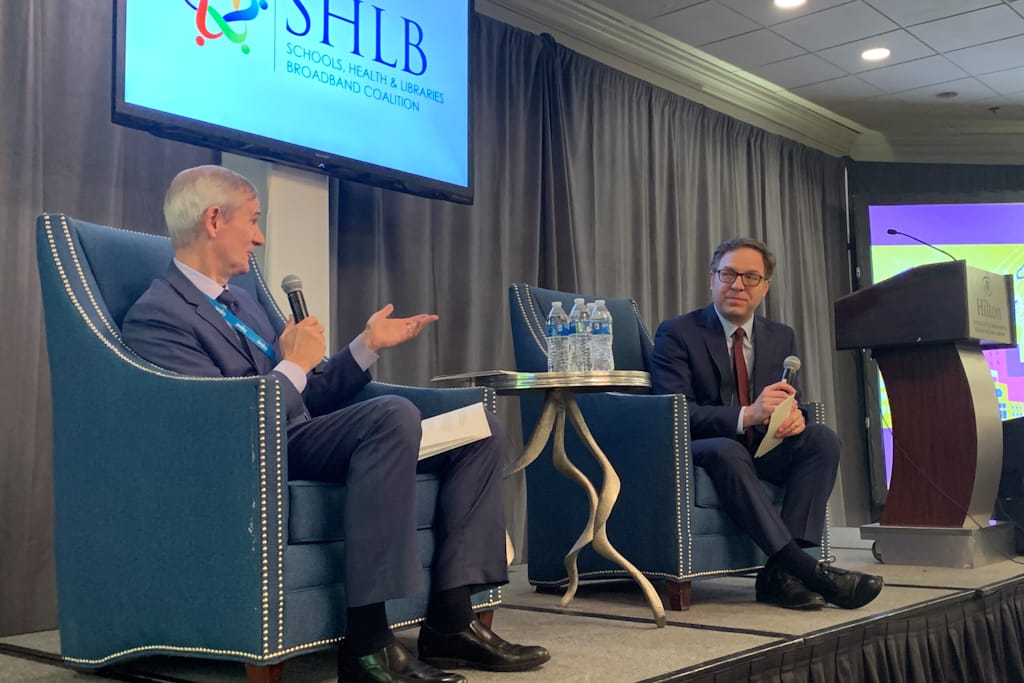Speaking at AnchorNets, NTIA’s Alan Davidson Touts Role of Anchor Institutions
‘Community-anchor institutions have been and are the connective tissue that make delivering high-speed internet access possible,’ he said.

‘Community-anchor institutions have been and are the connective tissue that make delivering high-speed internet access possible,’ he said.

CRYSTAL CITY, Va., October 14, 2022 – States will be required to work with local communities on broadband programs as unprecedented funding initiatives roll out from the federal government, said Alan Davidson, head of the National Telecommunications and Information Administration.
“It’s critical that the states are being guided by as many local voices as possible,” said Davidson, addressing the AnchorNets 2022 conference Friday morning. The NTIA, an arm of the U.S. Commerce Department, will ensure state broadband plans are informed by community input, he added.
Davidson also emphasized the role local institutions can play in boosting connectivity and the importance of federal adoption and affordability initiatives, such as the Federal Communications Commission’s Affordable Connectivity Project.
“Community-anchor institutions have been and are the connective tissue that make delivering high-speed internet access possible,” Davidson said.
The NTIA’s broadband policies are “about more than just a connection, more than just access,” Davidson argued. “A wire to somebody’s home… doesn’t help them if they can’t afford to get online.”
The NTIA will administer the rollout of tens of billions of dollars in broadband funding, the majority of which – $42.45 billion – is from the Broadband Equity, Access, and Deployment program. BEAD funding will be granted to each state government based on relative need, and the states will distribute sub-grants to contractors.
John Windhausen, executive director of the SHLB Coalition – the host of AnchorNets 2022 – praised Davidson’s remarks.
“Alan Davidson’s comments really recognized that the anchor institutions can play a role in several different aspects of solving the digital divide,” Windhausen told Broadband Breakfast.

The ambitious undertaking is supported by a $20 million grant awarded under the 2021 Tribal Broadband Connectivity Program.

Satellite companies want easier access, while carriers say that could upend licenses they purchased.

The agency tapped Tricia J. Paoletta and Matthew Plaster as senior advisors

The fire chiefs voiced strong support in May 2025 for NextNav’s new technology, before shifting gears just last month.
Member discussion